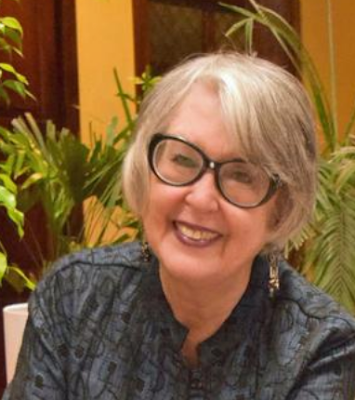Carolyn Hamilton
I'm pleased to introduce Carolyn Hamilton, Guest Blogger, who shares twelve tips for memoir writers. There's some treasure for writers of other genres, as well. I met Carolyn through her facebook group.
Guest Blog by Carolyn Hamilton
It’s probably as hard to give advice on how to write a successful memoir as it is to write the darn thing!
But I never let that stop me... :)
When I think about it, here are my TOP 12 TIPS for writing a successful memoir:
1. Read memoirs similar in time or theme to yours.
In a writing group, I met a woman who was writing a romance novel, and when I asked her who her favorite romance author was, she said, “Oh, I don’t read romance, I read science-fiction. Doomed to failure, in my opinion. It’s imperative that you know something about the genre in which you’re writing. Read memoirs written by “regular” people, not by celebrities. Then ask yourself, what was compelling about their story? What was their theme, or the message they wanted to share?
2. Read books on writing, and specifically writing memoir.
“But I’ve never written anything before,” you say. Writing well is a skill you can learn. There are a myriad of books to choose from that can introduce you to principles of grammar, style, story-telling and editing.
3. Join a critique or brainstorming group, preferably one that specializes in memoir or personal essay.
You don’t have to share your writing at first, if you aren’t comfortable. Maybe you haven’t even written anything yet. You can learn a lot from listening to others read their writing and listening to the feedback that is offered. As you read about writing and begin to write your own memoir, you will have gained in knowledge along the way. This is a learning-by-doing journey!
4. To begin, think of how you would tell your story to a friend over lunch. The Who, What, When, Where.
Don’t get bogged down in the beginning with the intimidating things about writing that you think you don’t know. This is simply story-telling. When you approach it that way, organizing your thoughts becomes easier. You could even tape-record yourself telling your story to a friend, and make notes of the questions he/she asked along the way.
5. Keep it simple: short words, short sentences, short paragraphs.
Like it or not, we live in Netflix binge-watching world, and have since the advent of the newspaper, USA Today. They rose to fame on the premise that people want information in a simple, straightforward format. Short words, short sentences and short paragraphs add impact to the story-telling, and move the story forward at a can’t-put-the-book down pace.
6. Avoid passive voice and use active voice (verbs) as much as you can.
Any verb that ends in “ing” indicates that you are speaking in a passive voice. “She ran across the street” is much more powerful than “she was running across the street.” Likewise, “I was thinking about what he said to me and decided…” does not have the impact of “I thought about what he said to me and decided…” Can you hear the difference?
7. Don’t tell what others are thinking or feeling unless they told you.
You are telling your story from your first-person point-of-view. If you weren’t in the room, you don’t know exactly what happened. And we never know what others are thinking or feeling—unless they tell us. We can only accurately write, “It seemed to me that he felt…” Or “I had the impression she thought…” or “She told me she felt…”
8. Keep your “ly” words to a minimum.
Words that end in “ly” like suddenly, softly, boldly, aggressively, shyly, meaningfully, etc. don’t help the story and overuse can indicate lazy writing. Ask yourself how you can write something physical, or active, that can convey these impressions.
9. Don’t edit as you write your first draft. Get the whole thing done first. Just throw up on paper!
I know this is so hard for so many people. But putting words to paper the first time is not a marital commitment. They can be changed—later. The important thing is to write everything down as fast and detailed as you can remember. I promise you will feel a strong sense of achievement when you have completed your first “rough” draft.
10. Think of how you can tell your story in scenes so that you show, rather than tell, as much as possible.
Your reader wants to be able to visualize what you experienced, what happened to you. Little details and descriptive scenes with dialogue can make that happen. The happy result is that your reader “bonds” with you along the way and follows you, committed to the very end of your book.
11. Show us positive things as well as negative things. No person or experience was ALL bad.
A woman I know was a famous entertainer’s mistress for 15 years. She had New York “publishing connections” and still couldn’t sell her story. Agents told her she was “just too angry” and if it was all that bad, why did she stay with him for 15 years?
12. DON'T WORRY ABOUT WHAT OTHERS WILL THINK!
In today’s world, you can’t leave the house and accomplish anything meaningful without someone lurking in the bushes waiting to criticize you. It happens. You can get past it.
BIO:
Carolyn V. Hamilton is an author and entrepreneur with an extensive background (30+ years in the world of “Mad Men”) in advertising, marketing, graphic design and direct response copywriting. She has published both fiction and non-fiction, coaches aspiring memoir writers, and is currently working on her second memoir. She also moderates the private Facebook group, Aspiring Memoir Writers.
Links:
Carolynvhamilton.com
SwiftHousePress.com























